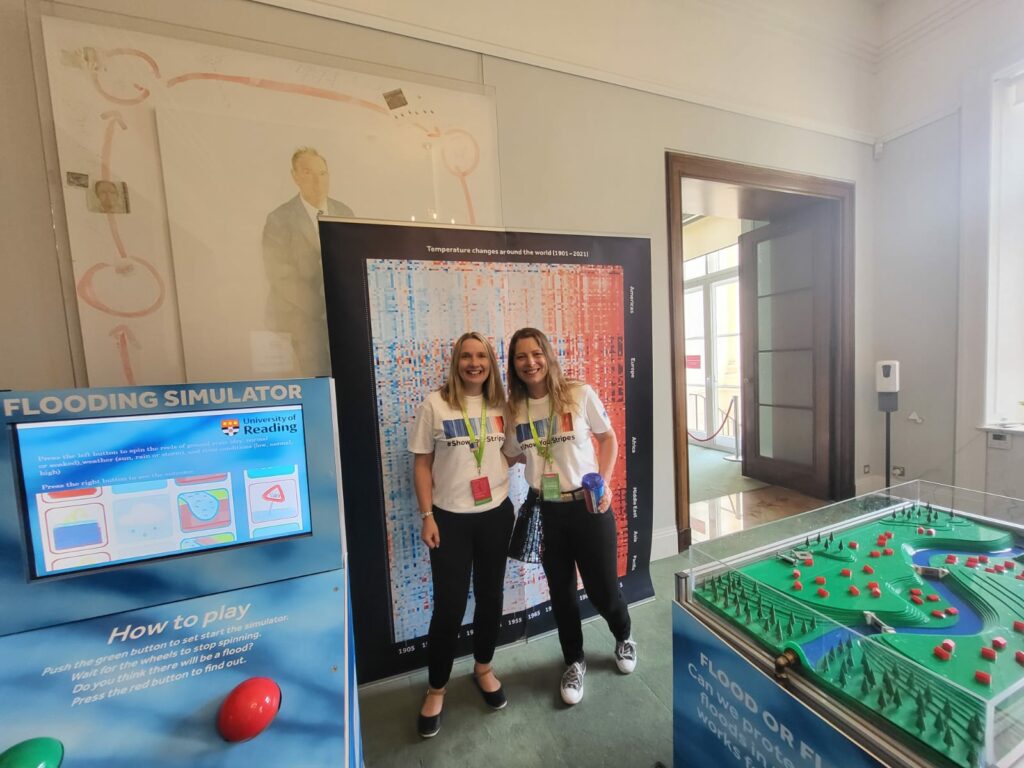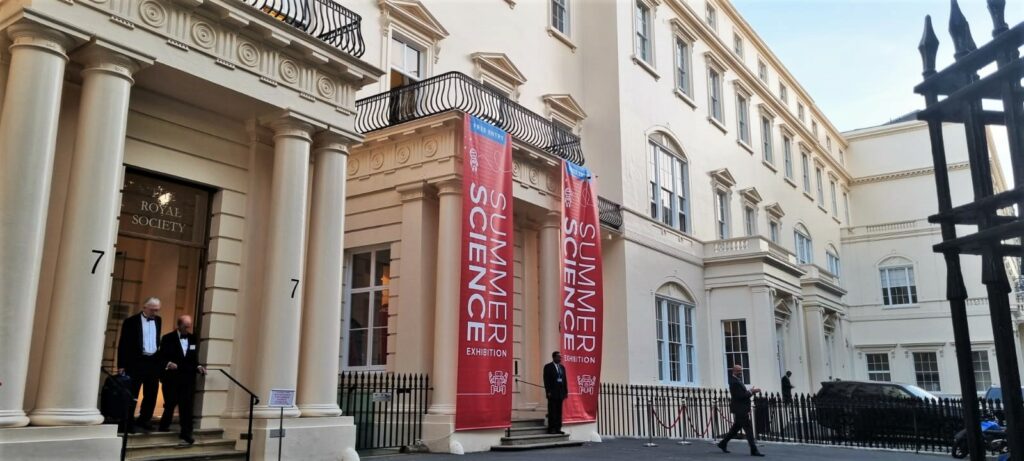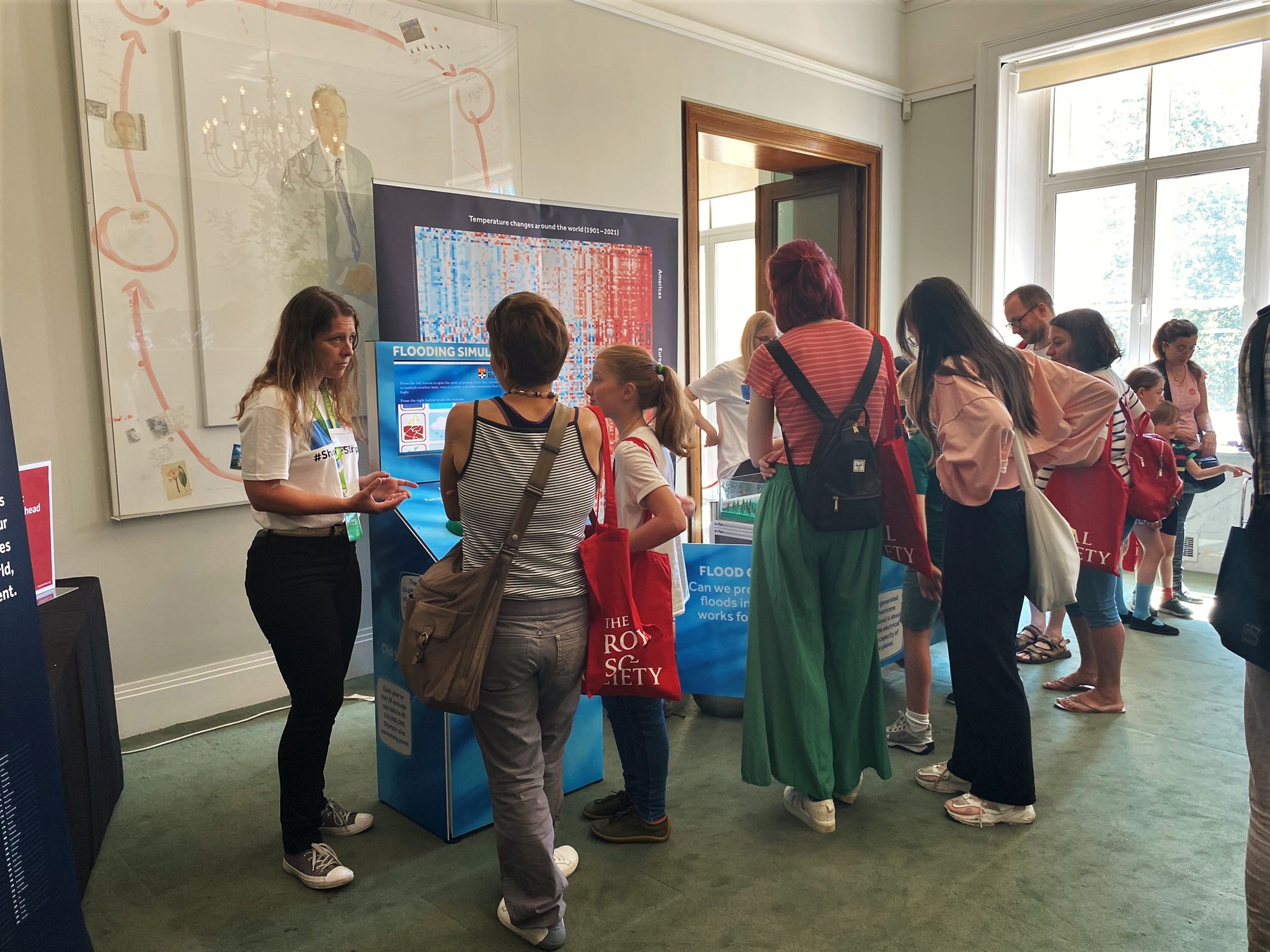Scientists from the University of Reading attended the Royal Society’s Summer Science Exhibition to talk about hydrology and climate science through an interactive exhibit on the latest flooding research.
The Summer Science Exhibition is an annual display of cutting-edge science and technology in the UK, hosted by the Royal Society. The exhibition provides scientists with the opportunity to showcase their latest research to schools, the public, science journalists, policymakers and members of the Royal Society.
Researchers, academic staff and PhD students from Water@Reading in the Department of Geography and Environmental Science showcased their potentially life-saving research on flooding at the event with hands-on activities including a fruit machine game and flooding simulator table to demonstrate the difficulty of accurately predicting flooding.

The fruit machine showed visitors how different environmental factors combine to potentially cause a flood, prompting conversations about the effects of weather and climate on flooding around the world.
On the flooding simulator table, visitors could place houses along a river flowing with water and insert flood barriers along the river. Then, they watched what happened when a floodgate was opened to fill the table with water, and subsequently learned about the impacts of floods on homes and lives.
Floods are becoming more likely as the climate warms, and flood forecasting can be difficult. However, thanks to research from hydrologists and meteorologists at Reading, flood forecasting is improving and helping people become better prepared for these extreme events.
The exhibit also displayed the climate stripes, where visitors were invited to find their place in the history of climate change on a graph showing the change in average annual temperatures across the globe.

More than 3,300 visitors curious to learn more about flooding and climate research attended the exhibit over the two days, and were inspired by talking to Reading’s hydrologists, meteorologists, technicians and scientists.
By using a hands-on exhibit, researchers were able to open up the conversation to the public in new and exciting ways, and gained experience of public engagement in the process. Dr Jess Neumann said:
“It was very rewarding to inspire children and adults to think about flooding and climate change and there was lots of interest. Nearly everyone stopped at the flooding table and watched. Anything that visitors could get their hands on and try for themselves was really popular. Having the ability to create different outcomes sparked very interesting conversations.”
Hear Hannah Cloke speak to the Royal Society about extreme weather events here:
Interested in getting involved in public engagement? Contact the Research Communications and Engagement team to find out more.

